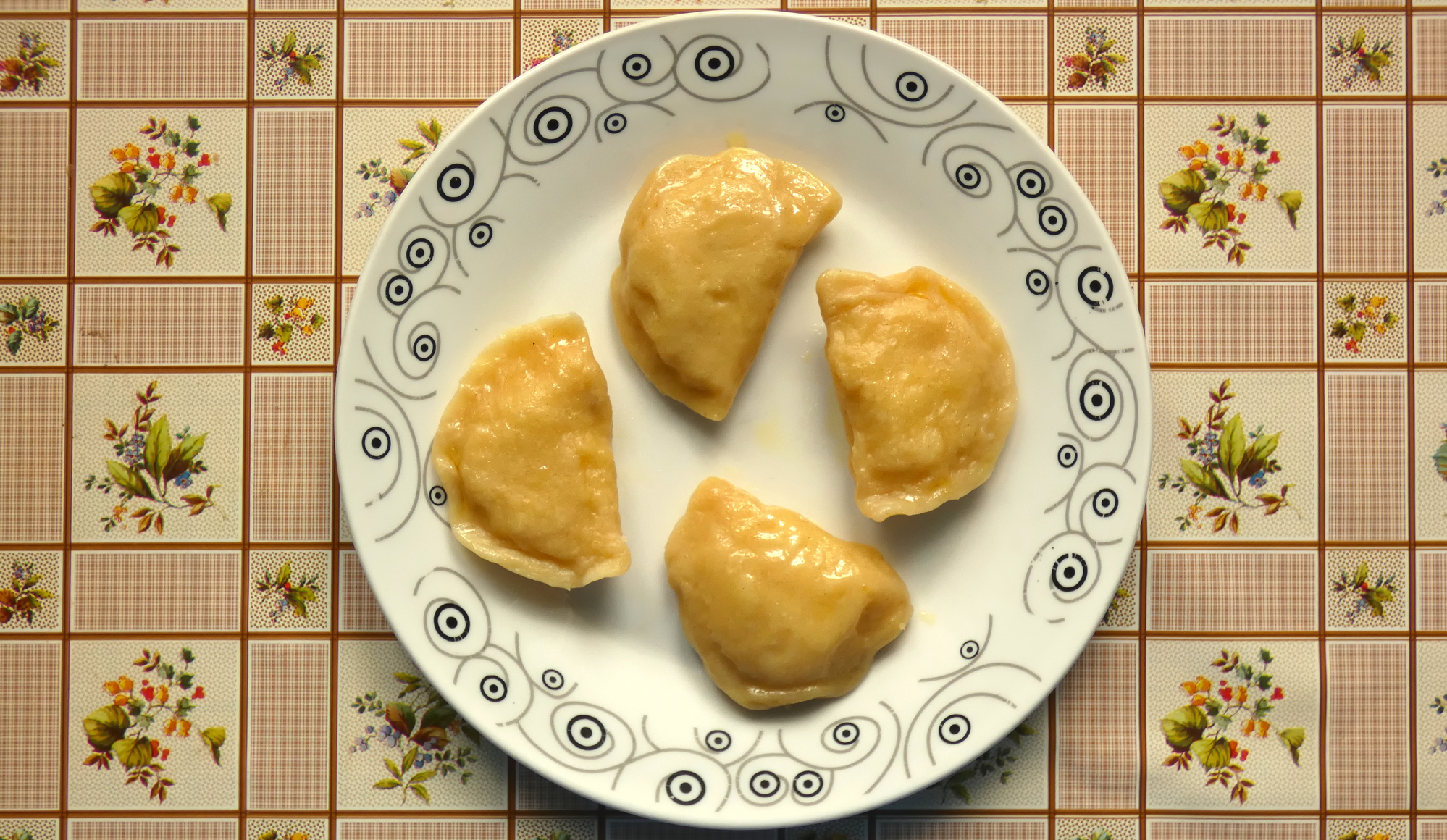Everyone Loves Pierogies—but Have You Tried Sweet Pierogies?
Despite the fact that I'm not Polish and hadn't visited the country until my late 20s, I've long been a fan of the country's signature dumplings. What further proof do you need to prove Poland is a country of carb-loading geniuses than pierogies? Poles literally took a handful of potatoes, asked themselves how they could make it heavier, and then shoved them inside pasta. Sometimes, the results are even fried—because, to bastardize the famous Ben Franklin quote about beer, Polish food is proof God wants us to be happy.
Even though I was familiar with variations on the theme (cabbage gets plenty of work as a filling, as do cheese, meat, and mushrooms), I was several Polish vacations deep before anyone introduced me to sweet pierogies. The Poles have a talent for creating sugar-laced takes on nearly any starchy food: fruit soups with pasta, noodles served with sugar and cream, and potato pancakes with apple sauce. (The concept is particularly popular with kids; however, an informal survey tells me that milk soup, another sweet with thick skin from being boiled, is the bane of most Polish elementary school children.)
Fruit- and sweet cream-laced pierogies are the star of this tradition. Yes, they really do taste like pasta combined with sugar and fruit. Blueberries and strawberries are the usual suspects—although a variety filled with farmers' cheese recalls a very light cheesecake-esque texture. As far as base appeal goes, it's a strong meeting of worlds: Starchy and sweet, this is essentially two comfort foods in one dish. At a recent party, my friend's mother (Hanna Marszałek, a name I mention only because having tasted her food I'm actively researching adult adoption) made cherry pierogies at my request. We ate them in happy silence, slicing through the thin dough with forks and mixing the juice with unsweetened sour cream.

For me, the kid who grew up crying if she couldn't have spaghetti and dessert simultaneously, it's a novelty. But for my Polish friends, sweet pierogies are a culinary familiarity akin to breakfast cereal and Saturday morning cartoons, always linked to a comforting memory and usually consumed during vacation months. (Even if the deep bench frozen food sections at supermarkets like Biedronka have made the treat available year-around.)
"They're very seasonal," my friend Ania Kasperek says, trying to pinpoint the appeal. In her early 30s, she already speaks of dessert pierogies with nostalgia. "I associate it with my grandma's place and every summer that I spent there when I was kid. Every July I would go there for the whole month and my grandparents used to have fields of raspberry. Half of the family would come to pick them, and me and my cousins, all the kids were hanging out and eating."
But despite a near-universal fondness for the stuff, few Poles can name sweet pierogies' origin story. Although there are stories of homemade versions, usually compiled by mothers and grandmothers in triple-digit batches, there are no histories, no myths, and no origin stories—a unique exception to the story-rich Polish culture.
Anna Mejer, a pierogi-class instructor at Eat Polska Food & Vodka Tours in Warsaw, Krakow, and Gdansk, has a few theories. But as an academic, she's careful to emphasize that all she has are hypotheses. Firstly, her people like carbs. ("In Poland you're never more than three hours away from your next portion of gluten," she says.) They also have a sweet tooth, thanks in no small part to the country's heavy production of sugar beets. But perhaps most importantly, who doesn't like a deal?
"It might be a question of food that's seasonal in the summer, and free," she muses. "In Poland we eat a lot of for free things. There's a lot of wild mushrooms. We've always been growing an awful lot of stuff. Polish people, always looking for a way to economize. You have wild blueberries in your area? Pick them and add potatoes and flour, and presto! You have a dinner and dessert."
It's a statement that only highlights the true beauty of Polish food. Somehow, created through an act of practicality, sweet pierogies, equal parts sugary and savory, has become the "why not both?" response for anyone looking for a bit of culinary comfort. Because sometimes in Poland it simply isn't enough to be happy—you've got to be stuffed as well.
